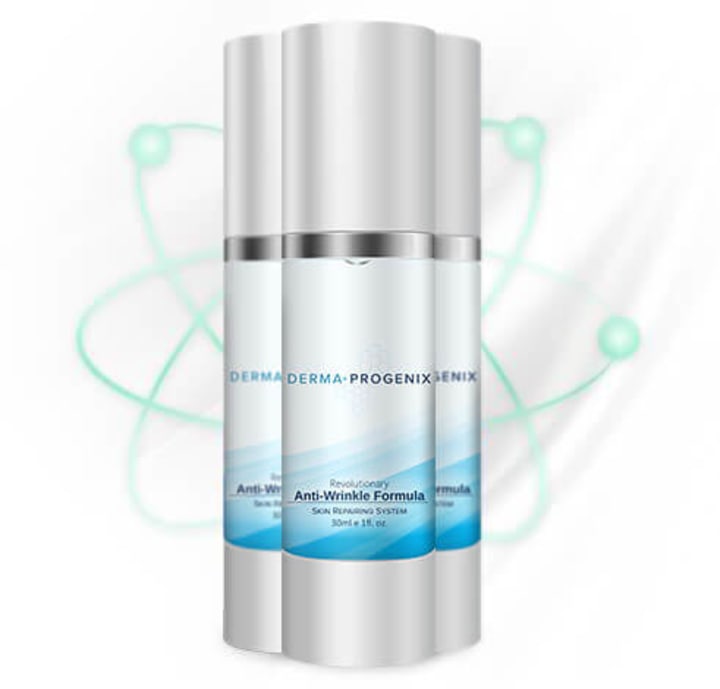Mastering Your Skin Care Routine: Tailored Tips for Every Skin Type
How to Care for Your Skin Personally

1. Introduction to Personal Skin Care
1.1 Importance of Skin Care
Caring for your skin is not merely a matter of aesthetics; it is a crucial aspect of overall health. Your skin is the largest organ of your body, acting as a protective barrier against environmental hazards, regulating temperature, and providing sensory information. Neglecting it can lead to various problems, from premature aging to severe dermatological conditions.
1.2 Personalization in Skin Care
Skin care is not a one-size-fits-all approach. Each individual’s skin is unique, influenced by factors such as genetics, environment, and lifestyle. Personalizing your skin care routine ensures that you address your skin's specific needs, leading to better results and healthier skin.
2. Understanding Your Skin Type
2.1 Identifying Oily Skin
Oily skin is characterized by an overproduction of sebum, resulting in a shiny appearance and enlarged pores. Those with oily skin may experience frequent acne breakouts and blackheads.
2.2 Recognizing Dry Skin
Dry skin lacks sufficient moisture and oil, often feeling tight and rough. It may flake, crack, or become irritated, especially in cold or dry weather conditions.
2.3 Combination Skin Characteristics
Combination skin exhibits characteristics of both oily and dry skin. Typically, the T-zone (forehead, nose, and chin) is oily, while the cheeks remain dry or normal.
2.4 Sensitive Skin Indicators
Sensitive skin is prone to inflammation and adverse reactions. It may be easily irritated by products, weather changes, or certain foods, resulting in redness, itching, or burning sensations.

3. Essential Daily Skin Care Routine
3.1 Cleansing
A gentle cleanser removes dirt, oil, and impurities without stripping the skin of its natural oils. It is the foundational step of any skin care routine, setting the stage for the absorption of other products.
3.2 Toning
Toners help to balance the skin’s pH, remove residual cleanser, and prepare the skin for moisturizing. They can also provide additional hydration and nutrients.
3.3 Moisturizing
Moisturizers lock in hydration, creating a protective barrier on the skin’s surface. They vary from lightweight gels for oily skin to rich creams for dry skin, catering to different needs.
3.4 Sun Protection
Daily application of sunscreen protects the skin from harmful UV rays, preventing premature aging, sunburn, and reducing the risk of skin cancer. It is a non-negotiable step in any skin care routine.

4. Advanced Skin Care Techniques
4.1 Exfoliation
Exfoliation removes dead skin cells, promoting cell turnover and revealing a brighter complexion. It can be mechanical, using scrubs, or chemical, using acids like AHA and BHA.
4.2 Masking
Face masks deliver concentrated ingredients to the skin, targeting specific concerns such as hydration, brightening, or detoxification. They offer a periodic boost to the skin care routine.
4.3 Serums and Treatments
Serums are potent formulations designed to address specific skin issues, such as wrinkles, hyperpigmentation, or dullness. Incorporating treatments like retinoids or peptides can significantly enhance skin health.

5. Importance of Hydration
5.1 Internal Hydration
Drinking ample water is vital for maintaining skin hydration from within. Hydrated skin is more resilient, appears plumper, and is less prone to irritation and wrinkles.
5.2 External Hydration
Using hydrating products, such as hyaluronic acid serums or moisturizing masks, ensures the skin retains moisture. This dual approach maximizes hydration, contributing to a healthy glow.
ACHIEVE VISIBLY YOUNGER LOOKING SKIN!
Derma ProGenix Advanced Anti-Aging Skin Care Serum Supplies are limited. Get it today!

6. Diet and Skin Health
6.1 Nutrients for Glowing Skin
Vitamins A, C, E, and omega-3 fatty acids are essential for skin health. They help in repairing skin tissue, reducing inflammation, and protecting against free radical damage.
6.2 Foods to Avoid
Excessive sugar, processed foods, and dairy can trigger inflammation and exacerbate skin issues like acne. A balanced diet rich in fruits, vegetables, and lean proteins supports clearer skin.

7. Managing Stress for Better Skin
7.1 Stress and Skin Connection
Stress triggers hormonal imbalances that can lead to skin issues such as acne, psoriasis, and eczema. Managing stress is thus crucial for maintaining skin health.
7.2 Stress Management Techniques
Incorporating relaxation techniques such as yoga, meditation, and regular exercise can mitigate stress. Adequate sleep and mindfulness practices also contribute to overall well-being and clearer skin.
8. Lifestyle Factors Affecting Skin Health
8.1 Sleep
Quality sleep is essential for skin repair and regeneration. Lack of sleep can lead to dark circles, dull skin, and a compromised skin barrier.
8.2 Exercise
Regular physical activity boosts circulation, delivering oxygen and nutrients to the skin. It also helps in managing stress and promoting a healthy glow.
8.3 Environmental Exposure
Pollution, UV radiation, and harsh weather conditions can damage the skin. Using protective products and adopting a thorough cleansing routine can mitigate these effects.

9. Skin Care for Different Ages
9.1 Teenage Skin Care
Teenagers often struggle with acne due to hormonal changes. A gentle yet effective routine focusing on cleansing and targeted treatments can help manage these issues.
9.2 Skin Care in Your 20s and 30s
Preventative care is crucial in these decades. Incorporating antioxidants, sunscreen, and starting on anti-aging products can maintain youthful skin.
9.3 Mature Skin Care
As skin ages, it requires more intensive hydration and collagen-boosting treatments. Retinoids, peptides, and rich moisturizers become essential components of a mature skin care regimen.
10. Seasonal Skin Care
10.1 Winter Skin Care
Cold weather can strip the skin of its natural moisture. Using heavier creams and protecting the skin from harsh winds can prevent dryness and irritation.
10.2 Summer Skin Care
Increased sun exposure and heat can lead to oiliness and sun damage. Lightweight, non-comedogenic products and vigilant sun protection are crucial during summer.

11. Dealing with Common Skin Issues
11.1 Acne
Acne requires a targeted approach, including salicylic acid, benzoyl peroxide, and non-comedogenic moisturizers. Consistency and patience are key in managing breakouts.
11.2 Eczema
Eczema-prone skin needs gentle, fragrance-free products and rich emollients. Identifying and avoiding triggers, such as certain foods or fabrics, is also important.
11.3 Hyperpigmentation
Hyperpigmentation can be addressed with ingredients like vitamin C, niacinamide, and retinoids. Consistent sun protection is vital to prevent further darkening of spots.
11.4 Rosacea
Rosacea requires products that reduce inflammation and redness, such as azelaic acid and soothing botanicals. Avoiding triggers like hot drinks and spicy foods can also help manage flare-ups.

12. Choosing the Right Skin Care Products
12.1 Reading Ingredients
Understanding product ingredients is crucial for making informed choices. Look for active ingredients that target your specific skin concerns and avoid those that can cause irritation.
12.2 Understanding Labels
Terms like “non-comedogenic,” “hypoallergenic,” and “dermatologist-tested” can guide you in selecting products suitable for your skin type and needs.
13. Natural and DIY Skin Care Remedies
13.1 Benefits of Natural Ingredients
Natural ingredients, such as aloe vera, honey, and coconut oil, offer soothing and nourishing properties. They can be gentle alternatives to synthetic products.
13.2 Popular DIY Skin Care Recipes
Homemade masks and scrubs, using ingredients like oatmeal, yogurt, and avocado, can provide effective and personalized skin care solutions. Always patch test before applying new recipes to your face.

14. Professional Skin Care Treatments
14.1 Facials
Professional facials can deeply cleanse and rejuvenate the skin. They often incorporate advanced techniques and products not available for home use.
14.2 Chemical Peels
Chemical peels exfoliate the skin at a deeper level, addressing issues like hyperpigmentation and fine lines. They should be performed by a qualified professional to ensure safety.
14.3 Microdermabrasion
Microdermabrasion removes the outer layer of dead skin cells, promoting new cell growth and improving texture and tone. It is a non-invasive procedure with minimal downtime.
15. Conclusion
15.1 Recap of Key Points
Personalized skin care is essential for maintaining healthy, radiant skin. Understanding your skin type, following a consistent routine, and addressing specific concerns are all critical components of effective skin care.
15.2 Final Thoughts on Personal Skin Care
Investing time and effort into personal skin care pays off in the long run. By adopting a holistic approach that includes proper nutrition, hydration, and stress management, you can achieve and maintain beautiful skin at any age.
Disclaimer: this article contains an affiliate link which make me a little commission without any over charges
About the Creator
Enjoyed the story? Support the Creator.
Subscribe for free to receive all their stories in your feed. You could also pledge your support or give them a one-off tip, letting them know you appreciate their work.





Comments
There are no comments for this story
Be the first to respond and start the conversation.